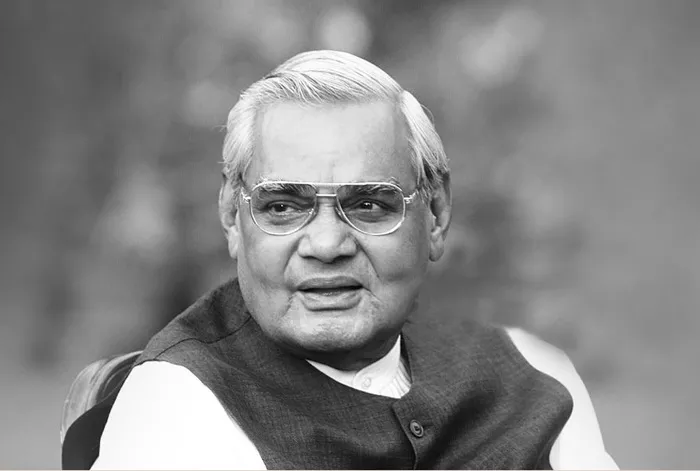As India celebrates the centenary of Atal Bihari Vajpayee on December 25, his legacy as a statesman, poet, and visionary remains a source of inspiration. A three-time Prime Minister and a key figure in the Bharatiya Janata Party (BJP), Vajpayee’s contributions continue to shape modern Indian politics, literature, and public life.
Vajpayee was more than just a politician; he was a poet who used words with remarkable skill. His speeches, often laced with poetry, resonated deeply with both Parliament and the public. Known as the “magician with words,” his oratory combined insight, humor, and dignity. His famous poem, Mastak Nahin Jhukega, strongly expressed India’s determination, especially regarding Kashmir, and affirmed the nation’s resolve against external pressures.
Vajpayee’s political approach was marked by the use of soft power, with persuasion taking precedence over provocation. His criticisms, though sharp, were always delivered with grace and wit. His commitment to democracy and his love for India shaped his vision of a united, stronger nation.
Though Vajpayee passed away on August 16, 2018, his influence endures. As the nation honors his centenary, his words continue to reflect leadership grounded in intellect, compassion, and integrity.
Here are some key quotes from Vajpayee that illustrate his philosophy for the nation:
“Guns can solve no problem; brotherhood can.” – Vajpayee emphasized this during his address on the Jammu and Kashmir issue in Parliament on April 23, 2003, advocating for solutions based on Insaaniyat, Jamhooriyat, and Kashmiriyat.
“The Pokhran-2 nuclear tests were conducted neither for self-glorification, nor for any display of machismo.” – After the 1998 nuclear tests, he clarified in Parliament that India’s nuclear policy was one of responsible deterrence, not aggression.
“One cannot wish away the fact that before good neighbours can truly fraternise with each other, they must first mend their fences.” – At Peking University on June 23, 2003, Vajpayee stressed the importance of resolving conflicts to build lasting regional relationships.
“History can remind us, guide us, teach us or warn us; it should not shackle us.” – Speaking at the 12th SAARC Summit in 2004, Vajpayee called for a collective approach in South Asia, urging nations to overcome mutual suspicions.
“We in India are inheritors to a great civilisation whose life chant has been ‘Shanti’ and ‘Bhaichara’.” – In 2004, at the Global Convention on Peace and Non-violence, he reaffirmed India’s commitment to peace and global cooperation.
“Poverty is multidimensional. It extends beyond money incomes to education, health care and political participation.” – At the UN General Assembly in 2003, Vajpayee presented a broad view of poverty, emphasizing its social and economic aspects.

